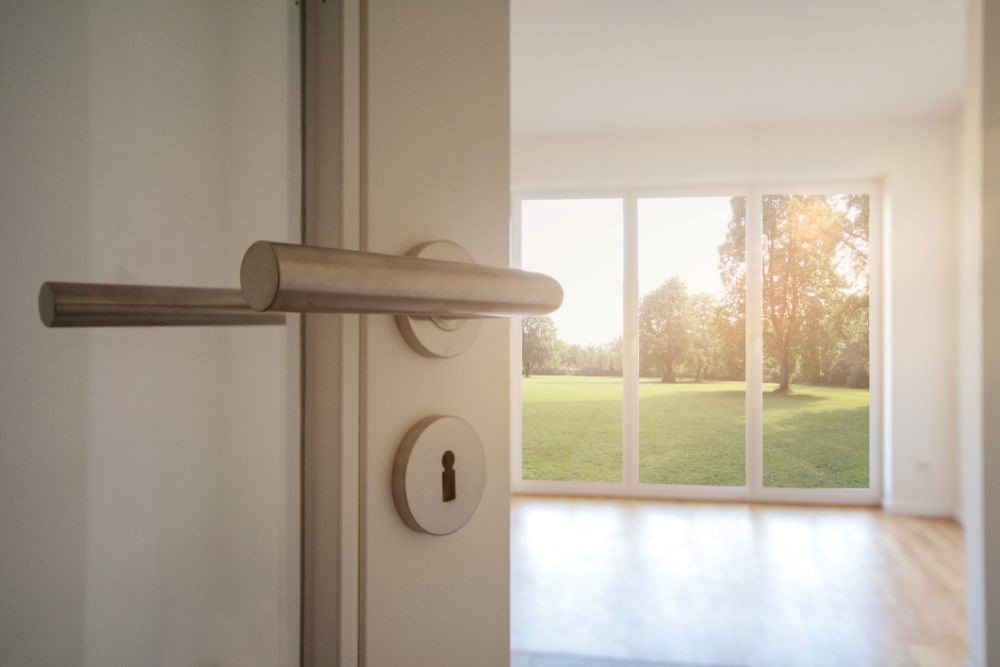Now that you’ve finally managed to save up a substantial amount of money for your dream house, you may be wondering whether it’s cheaper to buy or build a home. There isn’t one clear-cut answer. Some experts believe that buying a house is cheaper, while others maintain that building a house is more affordable.
We’ve made a first time home buyer guide just for you. The bottom line is that it really depends on your priorities, and what you really want from your home.
The costs of buying vs. building
Some findings have the average cost for building a house in 2020 was around $485,000, while the National Association of Realtors (NAR) estimates that the average cost of purchasing a single-family home was almost $309,000. So according to the averages, you could save up to $177,000 if you buy a house instead of building one. However, different bodies have wildly varying figures, so a clear picture is very hard to get.
When it comes to Williamsburg, VA real estate, costs will fluctuate depending on the neighborhood you’re looking at, as well as the materials you plan to use.
Pros of buying a house
It may take up to seven months or more for you to build your dream home, but if you buy a house, you can move into it soon after you close the deal. With an existing house, you may also be able to get a good deal, if a property has been on the market for a while and the buyer is eager to sell.
Cons of buying a house
If the neighborhood where you’re buying is a hot market, like waterfront homes for sale in Williamsburg, VA, prepare for some stiff competition. According to the NAR, sellers in hot markets can receive around four offers on their property, causing its value to increase. This doesn’t mean it’s impossible to land a waterfront home. Having a knowledgeable realtor by your side would make it much easier.
An existing house will sometimes not match the high expectations of buyers. Some may have outdated appliances, and depending on its condition, you may need to make major or minor repairs once you move in. Expect to pay a higher insurance rate for an existing house compared to a newly-built home.
Pros of building a house
If you build your own house, you can customize it to your heart’s content. Everything, from the flooring to the cabinetry and the lighting, can be built according to your specifications. If you have special requirements like having to have two home offices or you’re set on a big patio, you can also incorporate these into the plans for your new house.
A definite plus in building your own house is you won’t have to compete with other buyers, which can be a long and stressful process. You can build your own unique house often in a timeframe that is suitable to you.
Finally, you’ll rest easy knowing that it’ll be a while before you make any major repairs. New roofs don’t tend to leak and new floorboards don’t squeak. You can relax knowing that everything in your house is new and built to your exact specifications. Make sure that you’re working with credible professionals.
Cons of building a house
As mentioned above, you’ll have to wait for a number of months for your dream home to be completed. This is fine if you have a place to stay during construction and until the house is completed. However, if you’re in the process of also selling your home, managing the transition time from one house to another could be tricky. Delays in construction could affect you financially if you have a set date for handover of a house you are selling. You may have to rent if you have sold your home and your new one is not yet ready for you to move into.
When building your own house, you’ll be presented with what seems an endless stream of decisions to be made, from deciding which architect and contractor to hire, to the cabinet pulls and door knobs for your new home. If you have a full-time job and family matters to attend to, this need to manage and keep on top of the construction can become burdensome, even oppressive.
When building a home, you should also expect to deal with delays and other issues with subcontractors. You’ll need to inspect the building site regularly to avoid miscommunication. Of course, your construction could go smoothly, without a hitch, but it would be unwise not to make some contingencies for any issues that may arise.
You should be prepared to go over budget when you decide to construct your own home or add a buffer fund to the budget. These can be materials that end up costing more, or expenses that you weren’t expecting. These can add additional stress to what is already a fraught process.
Take a good look at your budget and personal preferences and think hard before you decide to buy or build. One or the other may be cheaper and less stressful depending on how you go about it.
Our Real Estate professionals are knowledgeable and ready to assist you with your buying or selling needs.
Call Us Today!


 Facebook
Facebook
 X
X
 Pinterest
Pinterest
 Copy Link
Copy Link
